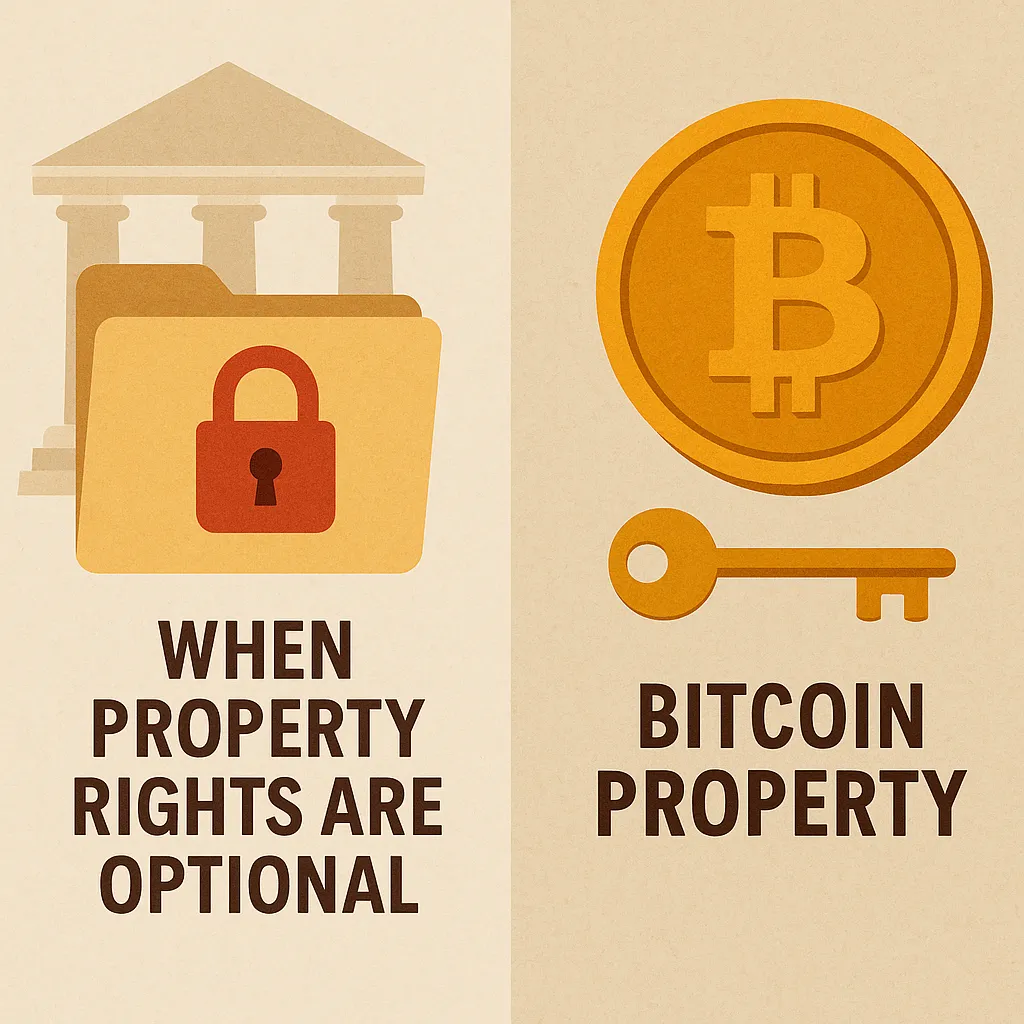
When Property Rights Are Optional: Fiat vs. Bitcoin Property
Property rights are the cornerstone of civilization. Without them, families can’t save, businesses can’t plan, and communities can’t build. The ability to own, protect, and pass on property is what transforms survival into prosperity.
Yet under fiat regimes, property rights are not guaranteed. They are permissions, granted or revoked at the discretion of the state. In contrast, Bitcoin establishes — for the first time in history — property rights that are absolute, digital, and independent of government decree.
Fiat’s Fragile Promise
On paper, fiat systems claim to protect property. But in practice, ownership is only as strong as the politics of the moment.
Inflation silently confiscates savings. Your bank account may have your name on it, but its purchasing power is at the mercy of central bankers.
Bank accounts can be frozen. Governments can cut you off from your own money with a keystroke, as seen with sanctions, capital controls, or protests.
Asset seizures happen overnight. From Cyprus’ bank bail-ins to Canada’s emergency measures against truckers, fiat property rights can vanish in an instant.
In fiat systems, property is conditional. It’s yours — until the regime decides otherwise.
Bitcoin’s Guarantee of Digital Property
Bitcoin changes the game. By securing ownership through cryptography and decentralized consensus, it guarantees property in a way no fiat system ever could.
No inflation. With a fixed supply, your share of Bitcoin can never be diluted by decree.
No seizures without consent. If you hold your own keys, no bank, government, or corporation can confiscate your Bitcoin.
Borderless portability. Bitcoin is property you can carry in your head with 12 words — no customs declaration required.
For the first time, individuals can hold an asset that is both digital and sovereign, immune to the fragility of political promises.
The Deeper Stakes of Property
Property is not just wealth. It is freedom. When people can own securely, they plan for the long term. They invest in families, businesses, and communities. When property rights are uncertain, everything shrinks to short-term survival.
Fiat undermines this foundation. Bitcoin restores it. By guaranteeing property rights without relying on fragile institutions, it reestablishes the trust and stability that civilizations need to thrive.
Optional vs. Absolute
In fiat regimes, property rights are optional. They exist at the state’s discretion.
In Bitcoin, property rights are absolute. They exist as mathematical truth, enforced by code and secured by energy.
The difference is more than financial. It is civilizational. Bitcoin is not just new money — it is the rebirth of property itself.



